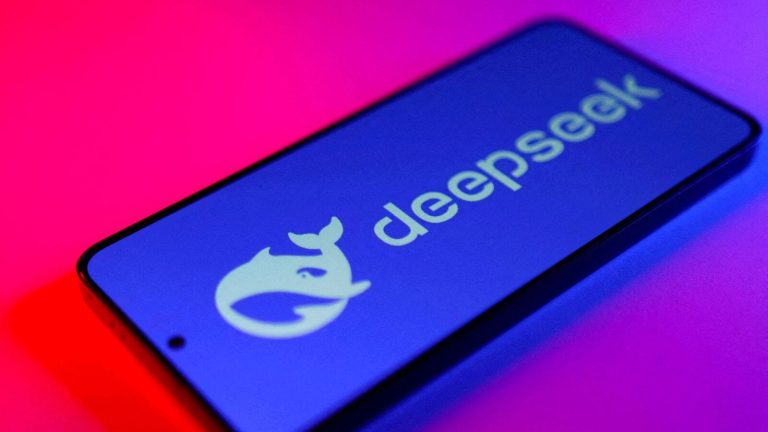“It is not surprising that China now competes closely with the U.S. for leadership in AI talent. It trains by far a larger number of engineers and computer scientists than the U.S., although the U.S. still has an edge in attracting the best global talent, including from China,” said Victor Shih, director of the 21st Century China Center at the University of California, San Diego.
“For now, the capital market for start-ups in the U.S. still functions much better than in China, but if the current turmoil turns into a prolonged recession, that advantage will be eroded,” he told Barron’s.
China leads globally in the number of AI-related publications and patents, according to Stanford University’s 2025 AI Index. This great leap is bolstered by significant government support and a strategic vision aiming for tech self-sufficiency.
A pivotal moment in China’s AI trajectory was the emergence of DeepSeek’s R1 model, which rivals top U.S. models despite limited access to advanced computing resources—particularly semiconductor chips—due to U.S. export restrictions. DeepSeek’s success intensified domestic competition—tech giants in China and start-ups tied to China’s elite universities are vying for dominance in the sector.
The landscape is characterized by fierce competition among established tech conglomerates—often referred to as the “BAT” trio: Baidu, Alibaba Group Holding, and Tencent Holding—and a new wave of dynamic start-ups.
Companies like Zhipu AI, MiniMax, and Moonshot AI have rapidly gained prominence, earning the nickname “AI Tigers” from investors. These start-ups aren’t only innovating at breakneck speed but are also attracting substantial investments, signaling a robust and competitive ecosystem.
Tencent, for instance, has upgraded its Hunyuan T1 model to compete with DeepSeek and Alibaba. Baidu has launched new models, ERNIE 4.5 and ERNIE X1, which it plans to integrate into China’s most popular search engine.
This internal competition is further amplified by the open-source approach adopted by many Chinese firms. While open-sourcing AI models fosters collaboration and accelerates innovation, it also raises questions about revenue generation and potential exploitation by international competitors.
Chinese universities have become pivotal to the nation’s AI advancement, significantly contributing to research output and talent cultivation. Recent data place Peking University, Tsinghua University, and Zhejiang University at the top of the charts in AI research publications. Notably, Peking University has topped global lists of institutions ranked by AI research output since 2022, according to AIRankings. Peking University’s AI institute said it referred requests for comment to professors, though none replied. Tsinghua University and Zhejiang University didn’t respond to requests for comment.
The success of AI start-ups like DeepSeek can be attributed, in part, to the robust talent pool emerging from these universities. DeepSeek’s founder, Liang Wenfeng, is a graduate of Zhejiang University, and the company’s team comprises young scientists, many of whom are fresh graduates from institutions such as Tsinghua and Peking University. This collaboration between academia and industry facilitates a seamless transition from cutting-edge research to real-world AI applications.
“When I was at Beida [Peking University], AI students were leaving or finishing their coursework to start companies—you’d hear about something new like every week,” said James Liu, who is now pursuing a doctorate at MIT after receiving his bachelor’s degree in China.
Despite these advancements, China’s AI sector faces significant challenges. U.S. export restrictions have limited China’s ability to procure high-end AI chips, compelling domestic companies to seek alternatives and innovate with available resources. This constraint has spurred efforts to develop indigenous chip-making capabilities, but achieving parity with global leaders remains formidable.
Moreover, the intense domestic competition necessitates strategic collaborations and a focus on niche areas to differentiate offerings. Companies are increasingly forming partnerships, both domestically and internationally, to leverage complementary strengths and navigate the complex AI landscape.
Zhu Songchun—arguably the most renowned figure in the Chinese AI world—returned to China from the University of California, Los Angeles, in 2020 to head Peking University’s Institute for Artificial Intelligence and its School of Intelligence Science and Technology.
At a recent conference in Beijing, his keynote address summarized the zeitgeist. “Creating world-class technology through Chinese thinking is our goal and our responsibility,” he said. “China is fully capable of taking the initiative in the era of general AI.”
Write to editors@barrons.com


